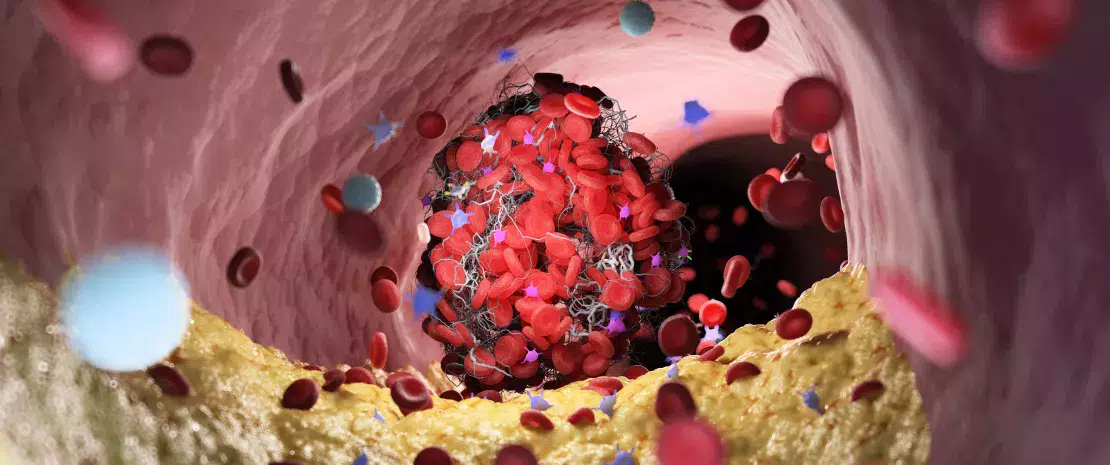Stroke: gut microbiota directly implicated
A Mendelian randomization study 1 has confirmed the causal effects of gut microbiota on ischemic stroke: certain bacteria have been identified as being able to increase or reduce this risk, opening up the prospect of prevention with probiotics.
Sources
This article is based on scientific information

About this article
Observational studies have one drawback: they cannot distinguish the chicken from the egg, and when it comes to microbiota, they cannot show whether dysbiosis is the cause or consequence of an illness. The solution? Mendelian randomization, named after the famous Austrian botanist Gregor Mendel, who laid the foundations of genetics with a few pea plants.
Mendelian randomization
Mendelian randomization is a statistical and genetic approach used in epidemiological research to assess cause-and-effect relationships between an exposure (e.g. a risk factor) and an outcome (e.g. a disease). It is based on the natural genetic variations in people, inherited at random from their parents. Use of this method can make it possible to establish (or refute) a causal link between an exposure (e.g. gut microbiota) and the genetic variants associated with a disease — ischemic stroke (or cerebrovascular accident) — and, more precisely, 3 subtypes: large artery stroke (LAS), small vessel stroke (SVS) and cardioembolic stroke (CES), based on data from the European (sidenote: European Megastroke Consortium: 40,585 stroke cases (including 4,373 LAS, 5,386 SVS and 7,193 CES) and 406,111 controls of European origin. ) Consortium 2.
2nd Stroke was the 2nd leading cause of death and the 3rd leading cause of disability worldwide in 2016.
70 to 80% 70 to 80% of strokes are ischemic, i.e. caused by the blockage of vessels carrying blood to the brain.
Identification of a handful of gut bacteria
To do this, the Chinese team carried out a Mendelian randomization analysis based on 194 bacterial traits of the European participants in the MiBioGen 3 consortium (18,340 individuals from 24 population cohorts).
The results from these cohorts show that gut microbiota is not linked to ischemic stroke subtypes. However:
- 4 bacteria increase the risk of LAS and 5 reduce it;
- 3 bacteria raise the risk of SVS and 6 decrease it;
- 4 bacteria amplify the risk of CES and 5 restrict it.
These results suggest a causal effect of the abundance of certain bacteria on the risk of stroke subtypes. In particular, Intestinimonas protects against the risk of LAS and SVS, and the Lachnospiraceae NK4A136 group against SVS and CES. According to the authors, these 2 bacteria could potentially be probiotics capable of mitigating the risk of ischemic stroke through metabolic regulation, if longitudinal studies and clinical trials go on to support their findings.
Recommended by our community

"Thank you for sharing" -@longphan368 (From Biocodex Microbiota Institute on X)












